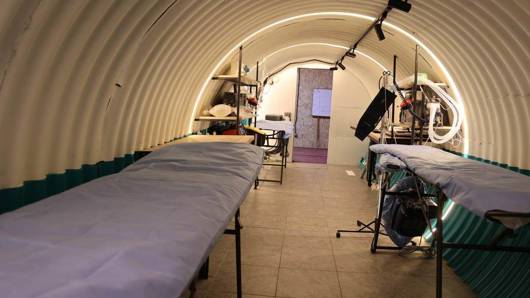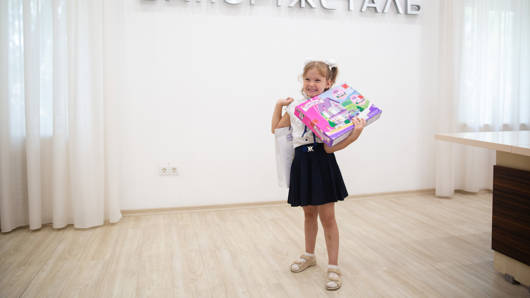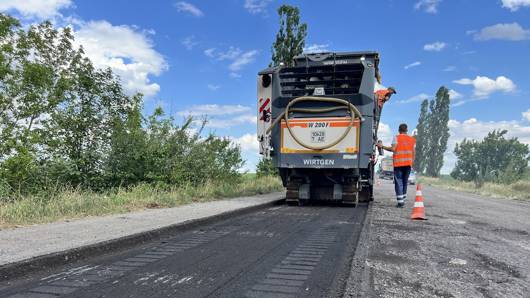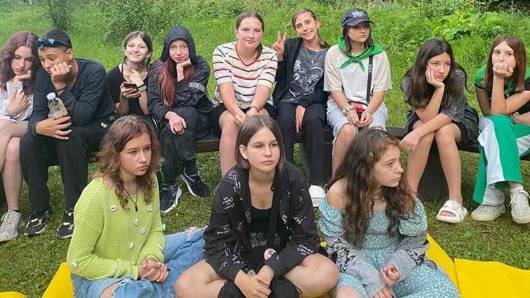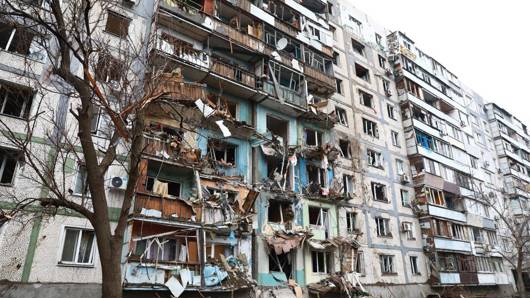With the support of Metinvest Group's Saving Lives humanitarian initiative, Zaporizhzhia schools are introducing a method of improving children's psycho-emotional state using hibuki therapy.
Hibuki therapy is an Israeli methodology that helps improve the psycho-emotional state of a child, which is currently a very important issue in Ukraine and in Zaporizhzhia in particular.
This year, in the hub of the NGO "Zaporizhzhia. Platform for Joint Action" 35 teachers and child psychologists from Zaporizhzhia were trained in hibuki therapy. The training was organised by Metinvest Group and Zaporizhstal. Upon completion of the training, teachers and psychologists received certificates and a therapeutic toy in the form of a dog, which is the main tool of therapy.
"The training was very positive, held in a playful way and at the same time very informative – with the involvement of world-class specialists. I am very grateful to Metinvest for gaining knowledge of this methodology and now I can support children with its help," says Olha IVANENKO, a primary school teacher at Zaporizhzhya Gymnasium No. 25.
According to the methodology, a child transfers his or her worries and fears onto the toy and, speaking on behalf of the dog, actually lives his or her own experience, does not focus on his or her psychological trauma, and talks about his or her own feelings.

"By hugging Hibuki dog, the child's level of anxiety and tension decreases, and a sense of security is created. Thanks to this technique, the child can better understand his or her feelings, share the innermost, express empathy, and develop his or her emotional intelligence. The child moves from the position of a victim to the position of a strong person who has the superpower to take care of those around him or her. By taking care of someone and controlling the situation, a child realises that he or she is able to control his or her life," says Iryna YURCHENKO, a psychologist at Zaporizhzhia Gymnasium No. 25.
Currently, hibuki therapy is being introduced in Zaporizhzhia schools in the form of both individual meetings with a psychologist and group lessons. They are conducted by teachers who have undergone appropriate training.
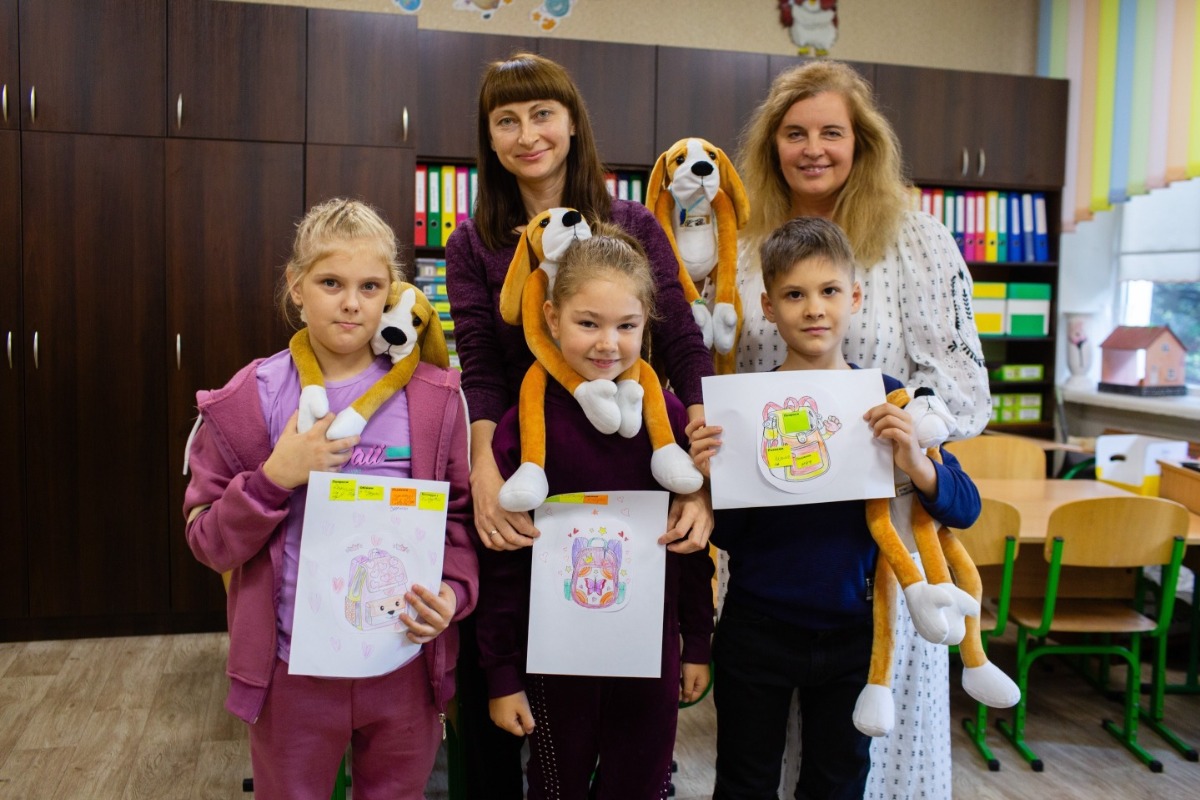
"This technique is very effective. And the Hibuki dog is a real bulletproof vest for a child's soul. He calms the kids down and sets them up for a dialogue. They see these wonderful hands that can hug, ears that are pleasant to touch, and immediately the tension decreases. The children talk about their fears, including those related to the war. Fears of living in a frontline city, the sounds of sirens and explosions. Many children are worried about moving, about friends and family they have lost. Hibusik is an assistant in conversation," says Olha IVANENKO, a primary school teacher at Zaporizhzhia Gymnasium No. 25.
The therapy is designed for children aged 4 to 17. The hug dog helps relieve stress and gives the child a sense of security, experts say.
"A soft toy with long legs is not just a child's best friend, but also a reliable defender: with the help of Hibuki therapy, children open up, trust and give us the opportunity to help them. We have been working with children whose fathers are currently serving, children of fallen heroes. And we see a good result in their mental state. I am proud that our gymnasium has two teachers and a psychologist who have completed this useful training and are already implementing it in their work. I am sincerely grateful to Metinvest for the opportunity to take part in the training – it is very important to support and educate a new generation of conscious and happy Ukrainians," said Maryna LUTSENKO, director of Zaporizhzhia Gymnasium No. 25 and coordinator of the Hibuki Therapy project in Zaporizhzhia.
Hibuki has also become a reliable friend for third-grader Erika. She trusts the hug dog with her secrets and experiences, and he, in turn, supports her with his hugs.
"This dog is my best friend, I love him very much. When he is having a hard time, I support him, say something interesting so that he is brave and does not get upset. He flew from his family in Israel to study and play with us," says Erika HARASHCHUK, a pupil of Zaporizhzhia Gymnasium No. 25.






